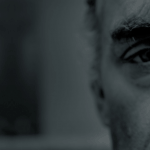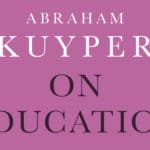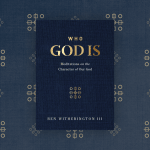
When a crisis hits, the most natural question is “where is God in all this?” While questions about God’s goodness and sovereignty—and how they relate—are common in theological debates, the tragedies of life rudely shove them in our faces. Travis Campbell has suffered tragedies of his own and asked these very questions. The Wonderful Decree is the result of his theological—and deeply personal—reflections and conclusions. In this interview, we ask Campbell to provide the backstory and essence of his book.
Lexham Press: Tell us a little about yourself and the story of how this book came to be.
Travis Campbell: I earned my ThM at Dallas Theological Seminary and my PhD in theology at Westminster Theological Seminary. I wrote my master’s thesis and dissertation on aspects of the same topic, which is the relationship between divine foreknowledge and human free will. I have always found this topic fascinating.
In 2001 my wife died of leukemia. In the wake of her death, I sincerely wondered if there was a God and came to realize that the sort of Calvinism I had embraced was insufficient to quell the doubts arising within me. For me, the relationship between divine foreknowledge and human freedom became logically subsequent to an even more important issue—namely, how can God be loving and sovereign at the same time? If I, as a Calvinist, insist that God only loves his elect, how can I be assured that he really loves me? I found typical Calvinistic answers to this question more problematic than the issue itself—hence, my doubts about God’s existence. The Molinist option, along with a variety of others (e.g., Open Theism, Ockhamism, Origenism, etc.), was equally, if not more, problematic than my own brand of Calvinism. However, going back to the older theologians—most notably Augustine and Aquinas—illustrated for me the tremendous wisdom that can be found in this great literature. The Augustinian-Thomistic answer became the key to helping me sort through my intellectual struggles. Thus, I developed a modern articulation of what is now often called Reformed-Thomism, which is the attempt to integrate the metaphysics of Thomas Aquinas, along with some aspects of his view of grace, with the sovereignty of God as it is expressed in the Reformed tradition.
LP: That God is sovereign over all things, that he is loving toward all His creation, and that creatures possess real responsibility for their actions—these are all commonly considered incompatible. Do you believe these can all be held together?
Campbell: My short answer is, yes. First, I believe that God’s sovereignty in no way detracts from genuine creaturely freedom and responsibility. Having said that, my book does not really answer the question of how this can be so, though it does touch on the issue whenever it is necessary to do so. Perhaps, Lord willing, I will be able to write a sequel exploring this very question. The reconciliation of foreknowledge and freedom deals with the harmonization of our concept of God with a fact of experience. The Wonderful Decree asks a more fundamental question—namely, is God, as we understand him, consistent with himself? Is he absolutely sovereign and universally loving? If so, how can this be so? How can God sovereignly ordain all that comes to pass, knowing full well who will and will not obtain salvation, and yet still possess a sincere desire that every person be saved? My answer is that it is not unreasonable to believe that God is both absolutely sovereign and universally loving.
LP: Often these issues can become purely academic and theoretical. Is there a pastoral value in this discussion? How is your view beneficial pastorally?
Campbell: I think there is great pastoral value to this question. The popular preacher can insist over and over again that everyone he’s preaching to is loved by God. He can say over and over again that God genuinely desires that everyone be saved. But how strong does this conviction remain when tragedy strikes and the poor believer is left destitute of child, a spouse, a parent, or a friend? The usual feeling is loneliness, despair, and an extreme sense of betrayal by the hand of One who supposedly created and loves him. Gaining an intellectually rigorous and biblically faithful perspective on this topic will aid the theologian as he is thinking on this difficult issue, help the pastor seeking answers as he tries to comfort the sufferer, and comfort the simple layperson as he tries to navigate life existential storms.
LP: How do you see Spurgeon as an exemplar for your approach?
Campbell: Surgeon begins where we all should begin—namely, the affirmation that the Bible teaches both truths (i.e., the sovereignty of divine election and the universality of divine saving love). He rightly clings to these truths even if he cannot bring them together in a coherent way. My hope in writing this work is to help those who share Spurgeon’s intuition see how these truths are not as paradoxical as it first appears. Reformed-Thomism can aid us in navigating and reconciling the apparently contradictory ideas.
LP: What do you hope that readers take away from this book?
Campbell: First, I hope they understand that this book does not come from an ivory tower, but was forged in the midst of great loss and anguish. Second, I hope that they come to realize that these biblical truths can be intellectually reconciled. Third, I hope that anyone going through “a dark night of the soul” can find some comfort in the truths expressed in this work.







